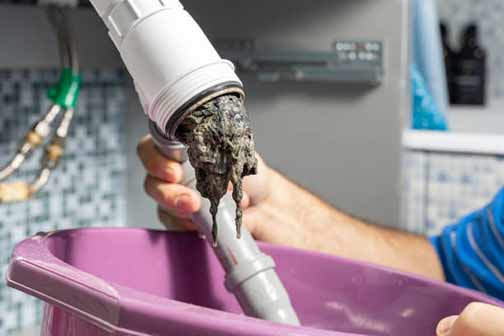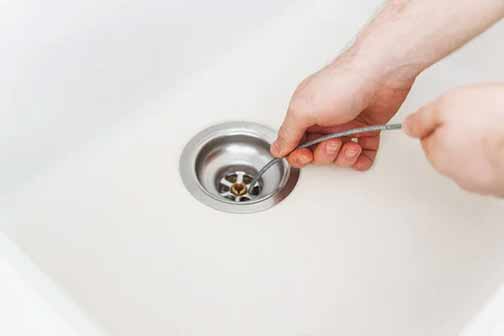
As a homeowner, you must have heard many sounds coming from your plumbing system. Among the most frequent and frightening sounds is gurgling drains. Understanding why your drains are gurgling and how it impacts your home’s plumbing system is essential for good plumbing system maintenance. Here we will provide you with a full overview of what gurgling drains are, what they indicate, and measures you can take to fix and avoid this issue.
The Science Behind Gurgling Drains
Your gurgling drains are usually caused by air getting stuck in the plumbing system. The air trapped inside can disrupt the flow of water, resulting in the telltale gurgling sound. The noise is usually produced when air bubbles ascend through the pipes’ water, producing a burbling or gurgling sound.
Common Causes of Gurgling Drains
Several reasons can result in gurgling drains. Once you identify the reasons, you can easily identify and fix the problem.
1. Blocked or Clogged Drains
One of the most usual reasons for gurgling drains is an obstruction or clog in the drainpipes. Grease, food debris, hair, and other materials may settle over time, limiting water flow and causing air to become trapped in the pipes. When the water tries to pass through the clog, the entrapped air is released, producing the gurgling noise.
2. Ventilation Issues
Plumbing is supplemented by a vent system, which maintains air pressure and allows unobstructed flow of water. Blocked or improperly installed vents may cause pressure imbalance and hence result in gurgling sounds. Debris, bird nests, and mislocated vent covers are the likely culprits for clogged vents.
3. Defective P-Trap
The P-trap, which is a U-shaped tube under sinks and drains, is meant to retain water and keep sewer gases out of your house. A dry or broken P-trap will cause air to vent into the plumbing system, leading to gurgling sounds. Checking and maintaining the P-trap regularly will prevent this occurrence.
4. Sewer Line Issues
Gurgling drains can also be a sign of a more serious issue with your home’s sewer line. A blocked or damaged sewer line can cause a backup of wastewater, leading to increased air pressure and gurgling noises in your drains. If you suspect your sewer line needs repair, it is essential to address it promptly to avoid further damage and potential health hazards.
What Gurgling Drains Signify
Gurgling drains can be more than just an annoying noise. They can signify underlying issues with your plumbing system that require immediate attention. Ignoring gurgling drains can lead to more severe problems, including water damage, mold growth, and even structural damage to your home.
Actionable Steps to Address Gurgling Drains
Addressing gurgling drains promptly can help prevent further damage and maintain the health of your plumbing system. Here are some actionable steps you can take:
1. Identify the Source of the Gurgling
Begin by identifying the drain(s) where the gurgling sound is coming from. This can help you pinpoint the location of the issue and determine the appropriate course of action.
2. Use a Plunger or Drain Snake
If you suspect a clog or blockage in the drainpipe, try using a plunger or drain snake to remove the obstruction. A plunger can help dislodge minor clogs, while a drain snake can reach deeper into the pipes to remove more stubborn blockages.
3. Clean the Vent Pipes
If ventilation issues are causing the gurgling sound, check and clean the vent pipes. Ensure that they are free from debris, bird nests, and any other obstructions. If you are unsure how to access or clean the vent pipes, consider hiring a professional plumber for assistance.
4. Inspect and Maintain the P-Trap
Regularly inspect the P-trap to ensure it is not dry or damaged. If the P-trap is dry, run water through the drain to refill it. If it is damaged, replace it with a new one to prevent air from escaping into the plumbing system.
5. Check for Sewer Line Issues
If you suspect a sewer line issue, it is essential to address it promptly. Common signs of sewer line problems include multiple gurgling drains, slow drainage, foul odors, and sewage backups. Contact a professional plumber to camera inspect the sewer line and/or repair the sewer line.

Preventing Gurgling Drains
Preventing gurgling drains is key to maintaining a healthy plumbing system. Here are some proactive measures you can take to prevent gurgling drains:
1. Regular Maintenance
Regularly clean and maintain your drains and plumbing system to prevent clogs and blockages. Use drain screens or filters to catch debris and prevent it from entering the pipes. Schedule regular inspections with a professional plumber to identify and address any potential issues before they become major problems.
2. Proper Ventilation
Correct ventilation is essential. Ensure that your plumbing is well ventilated. Check and maintain the vent pipes for free flow to enable air passage and keep them from clogging. Correct ventilation keeps drains free from gurgling noises and helps to maintain air pressure.
3. Don’t Pour Grease and Food Waste Down the Drain
Grease and food scraps have the potential to build up inside the pipes and clog them. Do not pour grease down the drain and do food waste disposal properly. Use a compost bin for disposing of food scraps and use a paper towel to wipe grease off pans and then wash.
4. Utilize Enzyme-Based Drain Cleaners
Enzyme-based drain cleaners are a convenient and safe way to ensure that your drains remain clear. Enzyme-based drain cleaners have natural enzymes that break down organic material and prevent clogs. Regular use of enzyme-based drain cleaners can ensure that your pipes remain free from gunk and prevent gurgling sounds.
5. Check Water Pressure
High water pressure can cause stress on your plumbing system and lead to various issues, including gurgling drains. Monitor your water pressure and ensure it is within the recommended range. If necessary, install a pressure regulator to maintain safe water pressure levels.
When to Call a Professional
While some gurgling drain issues can be addressed with DIY methods, there are times when it is best to call a plumber near you. If you are unable to identify or resolve the issue, or if you suspect a more serious problem with your plumbing system, it is essential to seek professional assistance. A licensed plumber has the expertise and tools to diagnose and repair plumbing issues effectively, ensuring the health and safety of your home.
Wrapping it Up
Understanding gurgling drains and how to fix them is important in maintaining a healthy home plumbing system. Identifying the reason for the gurgling sound and acting on it to correct and prevent it keeps future plumbing breakdowns in check while keeping your home’s plumbing system operational for many years. Good maintenance, proper ventilation, and correct waste disposal are the most critical methods of preventing gurgling drains. If you notice frequent gurgling noises or think about a possible more critical issue, don’t hesitate to have a professional plumber assist.

